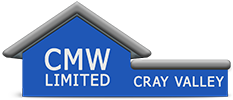
Introduction
In construction and electrical installations, a solid understanding of rigid metal conduit is crucial. As a cable and containment installer or a project manager on a building site, staying informed about the intricacies of rigid metal conduit is essential for ensuring the smooth execution of projects. This article aims to provide comprehensive insights, answering frequently asked questions and offering expert guidance on working with rigid metal conduit.
What is Rigid Metal Conduit?
Rigid metal conduit, commonly known as RMC, is a robust, heavy-duty, and reliable option for protecting electrical cables in various construction projects. It is known for its superior strength and ability to shield cables from physical damage and electromagnetic interference, making it a popular choice in industrial and commercial applications.
Differentiating Rigid Metal Conduit from Galvanised Conduit
While both rigid metal conduit and galvanized conduit serve the purpose of protecting electrical wiring, they have distinct differences. Rigid metal conduit, typically made of steel, offers unparalleled strength and durability, making it suitable for more demanding environments. On the other hand, galvanized conduit refers to steel or iron pipes coated with a protective layer of zinc, providing corrosion resistance and a more cost-effective solution for specific applications.
FAQs About Rigid Metal Conduit
What are the Advantages of Using Rigid Metal Conduit?
Rigid metal conduit offers exceptional mechanical protection for electrical wiring, ensuring the safety and longevity of the installed system. Its robustness makes it suitable for high-traffic areas and environments prone to physical damage.
How Does Rigid Metal Conduit Compare to Other Conduit Types?
Compared to other types of conduit, such as PVC or flexible metal conduit, RMC provides superior protection against impact and environmental elements. Its rigidity and strength make it an ideal choice for installations where durability and reliability are paramount.
Can Rigid Metal Conduit Be Used in Outdoor Applications?
RMC is well-suited for outdoor applications, particularly where the conduit is exposed to harsh weather conditions. Its resistance to corrosion and physical damage ensures the integrity of the electrical wiring, even in challenging environments.
What Are the Installation Considerations for Rigid Metal Conduit?
During installation, it's essential to use appropriate fittings and connectors designed for rigid metal conduit. Ensuring proper support and secure fastening of the conduit is crucial for maintaining its structural integrity and electrical safety.
How Does Rigid Metal Conduit Contribute to Electrical Safety?
RMC plays a vital role in electrical safety by providing reliable protection against mechanical damage and shielding cables from electromagnetic interference. Its sturdy construction reduces the risk of electrical hazards, enhancing the overall safety of the installed system.
Are There Any Special Requirements for Cutting and Threading Rigid Metal Conduit?
While cutting and threading rigid metal conduit, it's essential to use specialized tools and techniques to maintain the conduit's integrity and avoid potential damage. Adhering to precise measurements and employing appropriate cutting and threading methods ensures smooth and secure installations.
What Are the Maintenance Practices for Rigid Metal Conduit?
Regular inspections to check for signs of corrosion, physical damage, or any compromises to the integrity of the conduit are crucial. Implementing preventive maintenance measures, such as timely repairs and replacements, helps extend the lifespan and effectiveness of the conduit system.
Conclusion
Understanding the intricacies of rigid metal conduit is paramount for professionals in the construction and electrical industries. Its robustness, durability, and reliable performance make it a preferred choice for ensuring the safety and integrity of electrical installations, particularly in demanding environments. By adhering to proper installation and maintenance practices, one can leverage the full benefits of rigid metal conduit, contributing to the overall efficiency and safety of electrical systems on building sites.
If you want to take a closer look at our range of RIgid Metal Condiut, click here. If you want to contact or find out more about this blog posts author, Dave Dann, click here
Related Products
